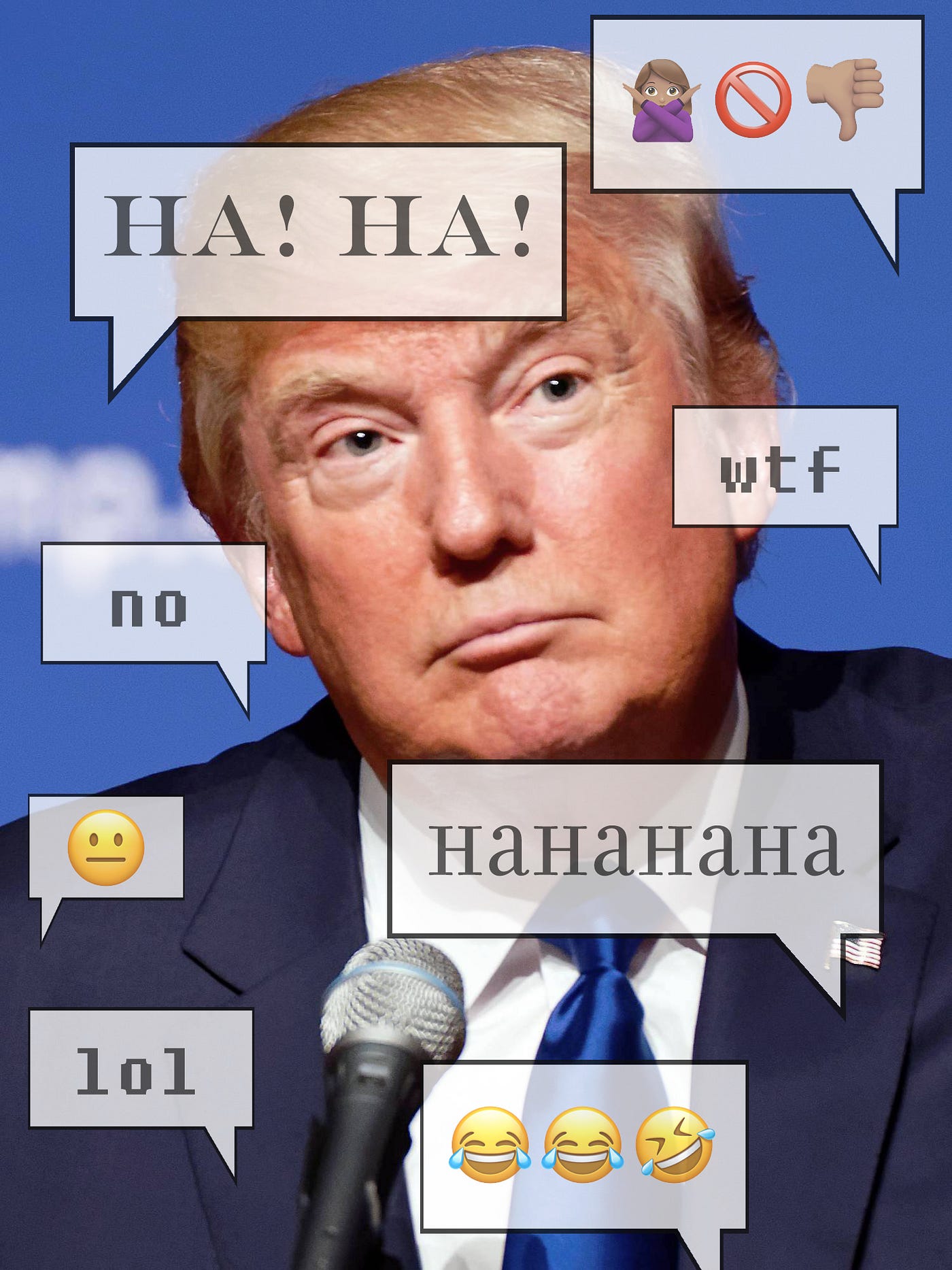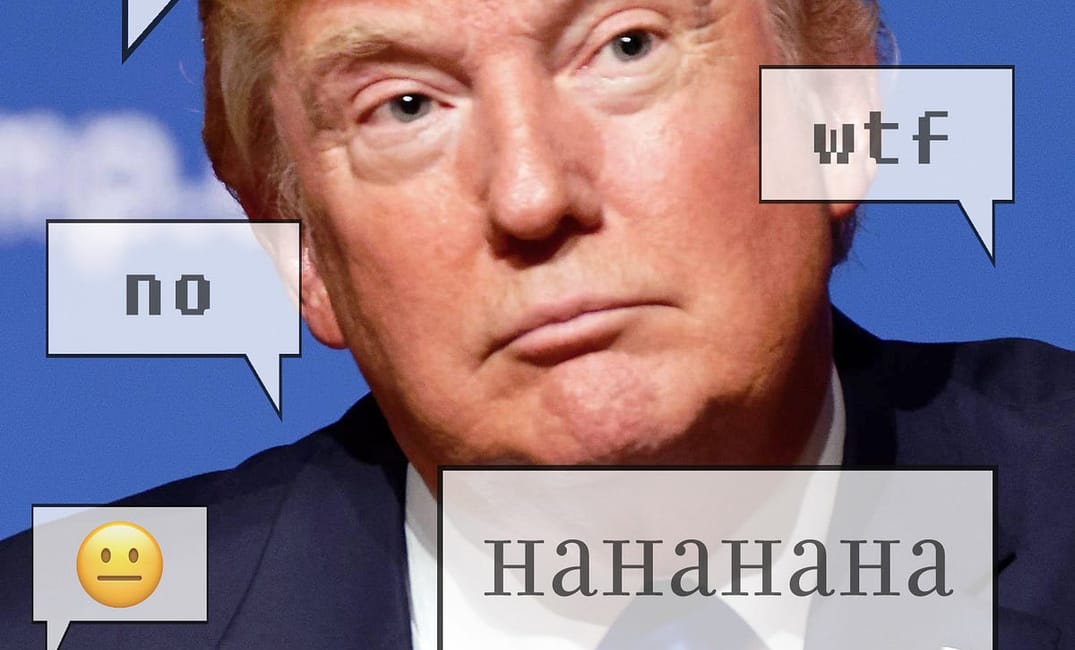
The night Donald Trump won the election, the media collectively erased any remaining dedication to neutrality and dug into the president-elect at full force. Every news outlet, tweet and casual conversation was saturated with Trump. Five months later, and President Trump still dominates most of the articles we see every day. This climate gave comedians like me two choices: mention him or distract from him entirely.
On election night, local comic Ben Kolina went onstage and gave the audience a choice: did they want to talk about what just happened, or would they rather hear about animals instead? Kolina says the audience responded overwhelmingly to hearing jokes about animals; however, the distraction proved futile. He was performing at an outdoor venue, and his jokes were soon drowned out by anti-Trump protests and helicopters flying overhead.
“At a certain point, I’m yelling about birds over unfolding political unrest,” Kolina said.
Other comics say there just isn’t anything to say about Trump the audience has not already heard. They say that things like Cheetos comparisons or other appearance-based jokes are ridiculously hackneyed at this point, and trivialize what is really at stake.
“Yelling about birds over unfolding political unrest” is a good way to describe what some comics prefer to do during these politically trying times. Many comics have found themselves in the same situation as Kolina, where the audience isn’t laughing at politics. Francesca Fiorentini, a local comic and the host of “Newsbroke” on AJ+, says this is because audiences aren’t looking for more bad news during their night out. Even though she does discuss politics in her stand-up routines, she says finding a balance is crucial.
“Stand-up is saving them from online alienation and news feeds for an hour and a half,” Fiorentini said. “You want a clean, mindless, harm-free laugh, and sometimes that’s in the form of a dick joke, but if your material starts to feel out of touch, you could find audiences turn on you, especially in the Bay.”
Other comics say there just isn’t anything to say about Trump the audience has not already heard. They say that things like Cheetos comparisons or other appearance-based jokes are ridiculously hackneyed at this point, and trivialize what is really at stake.
“Given that people I know are actively anxious about being separated from family members, making jokes about Trump’s hair or small hands seems to miss the moment,” said local comic Nato Green.
Every day seems to bring another country-altering headline, inciting thousands of tweets that make every joke about the day’s news feel played out by dinnertime. This can be frustrating for comics who do talk about politics in their act, like Green.
“Every new development that, once upon a time, comedians would have been able to milk for several weeks of comedy is now immediately displaced by the next horror or insanity, and everyone on the Internet is chiming in,” Green said. “It’s an outrage that I have to work harder at writing jokes because your aunt shared a meme.”
Succeeding with political humor seems to require not rehashing what’s been said in an attempt to breed familiarity but instead challenging the status quo. Luna Malbroux, a black, queer comic and writer for the KQED column “Mapping Privilege,” says her comedy has always taken inequality to task.
“Politics isn’t some abstract thing that’s detached from me; it’s a very real aspect of how I’m seen, how people communicate to me and whether or not I can receive certain resources,” Malbroux said.
She goes on to say that the most intriguing way she’s found to talk about Trump is not to solely place blame on the man himself but to dissect what has made men like that, and the responsibility America might potentially hold in the creation.
“Trump’s like a big-ass zit on the surface of America,” Malbroux said. “Sure, it’s ugly to look at, but we can’t pretend it wasn’t there, swelling up underneath in the first place. Make no mistake — Trump is a mirror of American culture.”
Green agrees, saying that for political humor to be effective, it can’t relentlessly tear down the oppressor. “I think the key to good political comedy is not to focus on the other side being stupid,” Green said. “It’s not like their policies would be better if they were smarter. Their awful policies don’t flow from their stupidity but from their ideology. Make fun of that. I drag the left too. If they’re stupid and we can’t beat [the right] handily, what does that say about us?”
Comics who talk about Trump in their stand-up routines say they aren’t striving to make his actions seem less significant but rather to restore power back to the people. For Irene Tu, that’s a sentiment she thinks about frequently when she performs. Plus she says there is the added appeal that he might hear it and respond. “He really seems to hate it when people make fun of him,” Tu said. “Maybe he’ll get so fed up with it that he’ll resign. One can hope, right?”







